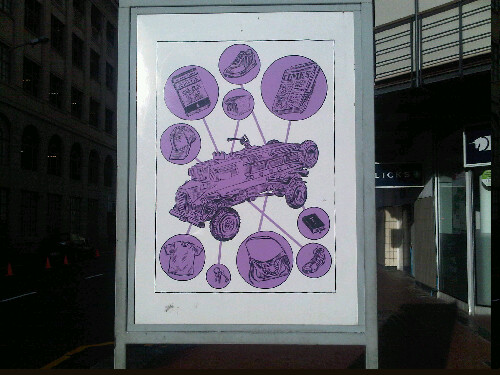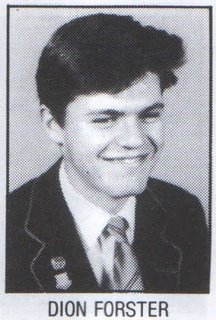World AIDS day - I am positive
 Wednesday, December 1, 2010 at 5:34AM
Wednesday, December 1, 2010 at 5:34AM Please take a few minutes to watch this wonderful TED video featuring Mitchel Besser, a doctor who is doing extraordinary work in supporting some of the most vulnerable people, who undergo immense suffering, with a very simple and effective Mother2Mother HIV AIDS support system.
The title of this post may be shocking - indeed, I it is intended to be so! I believe that if one person suffers we all suffer. So, to understand my statement 'I am positive' please read these posts.
Today is World AIDS day. Today we remember that the Church has AIDS. We do not minister to people who are HIV positive, as if they were people outside of the body of Christ. Rather, we ask God to heal us, for all of us suffer from this disease.
Whether you are HIV+ or not, this disease reminds us that we shall all face death. It reminds us that we shall all be ill at some stage. It reminds us that we need one another to be strengthened and encouraged to face the reality of struggle. It reminds us that society can be cruel and that people can be judged for something that afflicts them. Most of all, this disease reminds us that we have a God who cares and longs to bring us healing and hope.
Prayer of invocation:
Loving God, you are our parent. You look upon us with mercy and compassion. You understand our weakness. Our suffering breaks your heart. Look upon us with love, grace, and compassion today. Father, you know the pain of losing your only son to death. Jesus, you know the pain of dying and leaving those whom you love behind. Spirit you are the giver and sustainer of life. With confidence we approach your throne of grace that there we may receive mercy.
Renew our spirits and draw our hearts, bodies, and minds close to yours. All of us are subject to the frailties of life. Strengthen us in our weakness, bring us wholeness in spite of disease. For those who live under the impending threat of death, offer them comfort and strength in the knowledge that death does not have the final victory and that in you there is true, eternal, and blissful life that lasts for eternity. For those who feel the pain of seeing a loved one die, fill them with courage through the power of your Spirit of life. Surround them with caring and loving people who will show to them the love that you want to give them in their time of need.
Help each of us to strengthen our resolve to obedience and service. Give us courage so that we would not shy away from facing our own frailty and pain. Move us to go to the places of death, like your beloved disciple John went to your cross, so that we may offer love and healing to those whom you love.
Let us delight in doing those acts of mercy that will bring healing and honour Your name.
Today we declare the faith that neither height, nor depth, neither life, nor death, neither angel, nor demon, nor anything in all creation can separate us from Your love. You are the creator God. You make a way where it seems none can be found, your bring forth living waters in the wilderness. We place our trust in You, through Jesus Christ our Lord. AMEN
A meditation to guide your prayers and actions today
Nosipho's story - no greater gift.
Nosipho is just thirteen years old - tonight she is lying awake next to her 8 year old brother and her 5 year old sister. Her father named her Nosipho when she was born. She remembers that tonight. Her name has a very special meaning. Nosipho was born to her proud parents, Mxolisi and Vuyisile, in a remote part of South Africa called northern Kwazulu Natal. There was no work there for Mxolisi so he went to the city to find work as a labourer working on the roads. Mxolisi wanted to live a good life and take care of his family as best as he could. So, he faithfully brought money back to his Vuyisile and Nosipho at every opportunity. He and Vuyisile were blessed with a son who they named Andile (meaning 'the family is growing'). They loved their children very much and had great dreams for their future.
However, with each year that passed it became more difficult for Mxolisi to be alone in the city. The months that Mxolisi and Vuyisile spent living apart took a toll upon their marriage and they would often disagree and argue. Once, when they argued, he told her that 'he had needs', 'like all men do'. And so, he decided to take a 'city wife', as many of his friends had done. Sadly, his city wife was HIV+, and so when Mxolisi returned home one December, himself HIV+ by this time, he gave Vuyisile another child, Thandi (which means 'nurturing love'), but, he also gave her the killer virus that would take both their lives.
Mxolisi and Vuyisile discovered that they were HIV+ in the year that Nosipho turned 8 years old. Andile was 5, and little Thandi was just 2. Thandi had already been infected with the virus her mother was carrying through the milk she drank from her mother?s breast. Sadly, both Mxolisi and Vuyisile died of AIDS within 3 years of discovering their status, Thandi, however, is still alive and now a little girl of 5.
Nosipho is a clever little girl. However, she hasn't been to school since her father died when she was 11 years old. By that stage her mother was already very ill and confined to bed, but at least then Andile and Thandi could stay with their mother while Nosipho begged for food and money at a traffic intersection on the edge of the township. She watched the other children going to school dressed in their smart school uniforms, with book bags that had pencils, paper, and no doubt some lunch to eat. She wished that she could be like them, but that would not happen - her mother eventually died as well.
Tonight as she lay in bed she was no longer a child, but a parent, overnight she had become a 13 year old head of a household of three. She knew that she had a much greater responsibility than other 13 year old children. Each day she has to get enough money from the cars and commuters that come whizzing by to feed her two siblings and herself. She has a small cardboard sign on which she has written in a child's handwriting 'No parents, no food, no work, 3 people to feed. Please help. God bless you'. She also needs to get a few rand extra every month to help pay for Andile's school fees. She wants him to stay in school and learn so that he doesn't have to suffer like his father did. She doesn't want him to suffer like she is suffering now. Whatever money she has left after she has paid his fees, when there is any, is given to the 'aunty' who looks after her sick sister, Thandi, while Andile is at school and she is begging at the traffic lights. She doesn't trust the aunty, she drinks, and she's sure that she hits Thandi. But, she has no option. It is too dangerous for Thandi to be with her at a busy traffic intersection.
There are other girls like Nosipho. In fact most of the child headed households in South Africa are headed by girls under the age of 15. Nosipho knows this because she meets some of them every Sunday at a little group for children like her that is held in the tin church near her shack. They sing songs, some kind ladies read stories to them from the Bible, and then they say prayers and get some food to eat. The church has also given her clothes and shoes for her and for her brother and sister. There is a lady from the government clinic who comes to visit their group once a month. She always asks Nosipho if she is safe, and asks if she and her brother and sister are getting enough to eat. You see, Thandi needs special medicine to keep her healthy, but she can only take her medicine if she eats properly, or else the medicine will make her sick instead of healthy. So on days when Nosipho does not get enough money, or food, to feed all three of them she lets Thandi eat first, so that she can take her medicine. Andile eats next, because he can't learn when his stomach is empty. Nosipho often lies awake at night hungry, but she knows that she is a 'gift' from her parents to Andile and Thandi ? that?s what her name means. Nosipho means 'a gift'. It?s the name her father gave her. She doesn't play anymore, she simply lives to be a gift to her brother and sister. Tonight she prayed to ask God to help her because a man has said he will give her R20 if she takes her clothes off and sleeps with him. She's praying because she is afraid. She has been told at church, and she has seen the posters, and heard the stories - Nosipho knows that's how little girls get sick and die ? but she needs the money. She wants to be a gift. She doesn't know what to do. Maybe God will do something to help her tomorrow? It is Sunday, she will ask one of the ladies to help her.
Reflection: Stories such as this are common in South Africa. In KwaZulu Natal the death rate is higher than the birth rate because of AIDS. Recent statistics from UNICEF have suggested that up to 50% of children are HIV+ and an increasing number of children are growing up without their parents. Children like Nosipho face a stark and dreary existence. They are robbed of their childhood and dignity in a quest to survive. Very often their only support comes from community organisations such as churches and civic groups. For most children the lack of access to food, or poor nutrition and feeding practises, coupled with infection, leads to their untimely death. Children who are born in rural areas who do not have 'bar-coded' South African Identity documents do not qualify for medical care, schooling, or any form of government grant. Sometimes the most basic of help, like helping children register for an ID Book, or offering children a daily meal, and seeing that they take their medication can mean the difference between life and death. Methodist Churches in Southern Africa train all of their ministers to offer support and care to persons who are infected and affected by HIV. It is a central part of their training for ministry. In the region of the world that has the highest rate of HIV infection it cannot be any different. The Gospel demands that we bring healing and transformation. Perhaps the work of the Church near Nosipho could keep her from turning to prostitution at the age of 13? All that is needed is a courageous group of caring people who will see her plight, understand what she needs, and help her to find it - food, shelter, and loving adult support. This is what Jesus would do.
[I wrote this story as a case study for a book that is in publication in the Cambridge Theological federation, UK. Please do not copy it without contacting me. I shall put you in touch with the publishers to get permission. Thank you.]
Silent reflection and prayer.
- What do you feel? What do these feelings tell you about yourself?
- What does this story tell you about the world, and others in the world?
- What do you think God feels? What would God want you, or your Church, to do?
- Knowing this, what do you need to pray to have the courage to do?
- What will you do today? What will you plan to do tomorrow? What will you want to achieve by next year this time?
A benediction for today
Almighty God, by the power of your Holy Spirit open my eyes to see the world as You see it, my ears to hear the cries that You hear, my heart to have the courage to feel what You feel, and my life to be present to You and all those whom You love this day. Give me the courage to worship and serve you in faithfulness, to be a blessed and healing reminder of Your love to all whose lives I will touch. I offer this prayer in the name of Jesus Christ, to the glory of God the Father, and in the power of the Holy Spirit. AMEN.
If you're looking for some facts on HIV / AIDS here are a few that may be of interest:
Have you ever taken time to consider the relationship between faith, economics, globalization and the suffering of people
?
Well, recently I did a post about the neurological causes of greed, and how these can be managed as a 'value transaction' in order to address some of the economic inequalities that we face across the world.
Let me show you a few basic analogous maps of the world to illustrate the economic inequalities that exist in the world.
 First, here is a basic map of the world based on geographical land mass (i.e., this is the traditional manner in which maps are drawn - the area of each land mass is a represented equivalent of the actual land mass drawn to scale).
First, here is a basic map of the world based on geographical land mass (i.e., this is the traditional manner in which maps are drawn - the area of each land mass is a represented equivalent of the actual land mass drawn to scale).
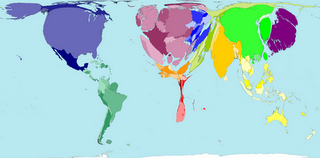 Now, take a look at this next map - this map is analogous of the world's wealth. In other words, the more wealth a nation has the larger it will appear on the map. Look how large North America and Europe are in relation to the rest of the world - it is also worth noting how rich Japan is on this map. Clearly, the world's wealth is concentrated in the Northern Hemisphere, and it is largely concentrated in the West. I shall, however, say something about the shifts that are taking place in the world's economy at a later stage.
Now, take a look at this next map - this map is analogous of the world's wealth. In other words, the more wealth a nation has the larger it will appear on the map. Look how large North America and Europe are in relation to the rest of the world - it is also worth noting how rich Japan is on this map. Clearly, the world's wealth is concentrated in the Northern Hemisphere, and it is largely concentrated in the West. I shall, however, say something about the shifts that are taking place in the world's economy at a later stage.
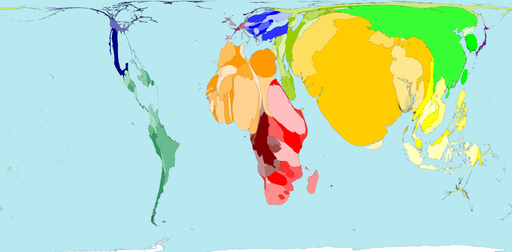 Next, take a look at this map which analogous of poverty across the world. It is almost an inverse representation of the wealth map above - this map shows nations that are poorer as larger masses on the map.
Next, take a look at this map which analogous of poverty across the world. It is almost an inverse representation of the wealth map above - this map shows nations that are poorer as larger masses on the map.
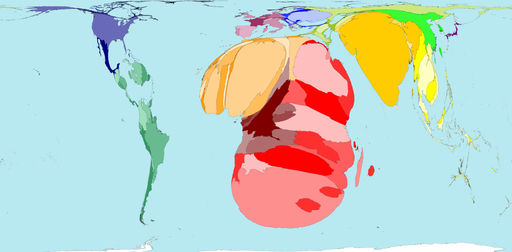 Now, take a look at this map which shows HIV / AIDS infection across the world - it is interesting to note that 68% of all HIV+ people live in Southern Africa (that is 22.8 million out of the 33 million persons who are HIV+). I have just written a study on this for a new book on a Christian response to HIV / AIDS - it is shocking to see the prevelance of AIDS deaths in Africa. But please do take a look at the last map in this series.
Now, take a look at this map which shows HIV / AIDS infection across the world - it is interesting to note that 68% of all HIV+ people live in Southern Africa (that is 22.8 million out of the 33 million persons who are HIV+). I have just written a study on this for a new book on a Christian response to HIV / AIDS - it is shocking to see the prevelance of AIDS deaths in Africa. But please do take a look at the last map in this series.
 This last map gives an analogous representation of where the world's Christian population lives. Isn't it sad to see that Christians live in most of the places where wealth, poverty and HIV / AIDS are significant problems? Clearly we have a few things to learn about money, God's economy, health care, reproductive care, women's rights, and sex!
This last map gives an analogous representation of where the world's Christian population lives. Isn't it sad to see that Christians live in most of the places where wealth, poverty and HIV / AIDS are significant problems? Clearly we have a few things to learn about money, God's economy, health care, reproductive care, women's rights, and sex!
OK, now I made mention of the fact that the world's wealth is concentrated predominantly in the North and the West - this is changing! Within the next 10 years the economies of the USA (North America), and most of Europe will show negative growth in some instances, and decline in others. The economies that are on the rise are China, India and Brazil (Australia is also a Southern Hemisphere economy that is growing at a significant rate). In other words, by 2020 we will see a completely different picture in global economic power! My advice is that you send your kids for a 'gap year' in China! As for me, I'm starting to study Mandarin!
If you're interested in a more detailed discussion of these shifts you can read this paper that I wrote for the Stellenbosch University Business school in 2009.
Sadly, Africa's economy will only show marginal growth since it is crippled by the impact of AIDS, political instability, underdevelopment and international debt. However, if we play our cards carefully the continent could be the next economic powerhouse after China and India since we are one of the only continents on earth that still has natural resources!
So, here's the point - did you realise that if we spent just 10% (190bn US$) of the annual world budget for military expenditure (1235bn US$) we could BOTH restore the earth's natural resources (cleaning up our water, replanting trees, creating environmentally friendly and more sustainable energy source), AND meet the basic water, sanitation, education and health care needs of the whole world! Just 10%... You can read about that research from Brown 2008 (entitled Plan B 3.0: Mobilizing to save civilization) here.
Christians make up more than 40% of the world's population - surely we could take up our responsibility to manage the 'household of God' (oikos nomos - economy) for the transformation of the world?
What do you think? How do we do it? What practical steps can you suggest to start making a difference within your sphere of influence... As I've been doing this research in recent weeks I've been praying one text consistently:
The earth is the Lord's, and everything in it, the world, and all who live in it. (Psalm 24.1 NIV)
If you're interested in an article / chapter that I have published on the subject of the environment and earthkeeping you can read
- More red than green ? a response to global warming and the environment from within the Methodist Church of Southern Africa. Forster, DA in The Epworth Review - the Journal of Methodist ecclesiology and mission Vol 35, No 2 (2008). This paper was also published in
- Forster DA, 'More red than Green', in What are we thinking? Reflections on Church and Society from Southern African Methodists. Forster, DA and Bentley, W. 2008. Methodist Publishing House, Cape Town. ISBN: 978-91988352-6. (2008:117ff. Chapter 7)
(This is not my area of expertise by the way, I am far more interested in justice and economics, but there was not much being written on this topic from our perspective so I took it upon myself to do some research in the area).
If you're interested in reading a chapter that I wrote on the Christian's response to Greed and Economics please see:
- Upon the Lord's sermon on the mount - discourse 8 (a contemporary exposition of John Wesley's sermon on stewardship and the use of money from an African Liberation Theology perspective) in Shier Jones, A and Reisman, KD 44 Sermons to serve the present age (2007), London: Methodist Publishing house. ISBN: 97807162063
Oh, and if you're looking for my 'other' post on maps of the world please go here. This is the MOST clicked linked on my blog - isn't that amazing!?
For more posts on HIV / AIDS please follow this link.



